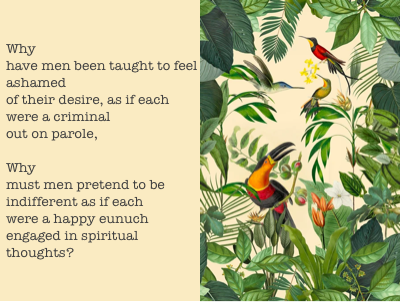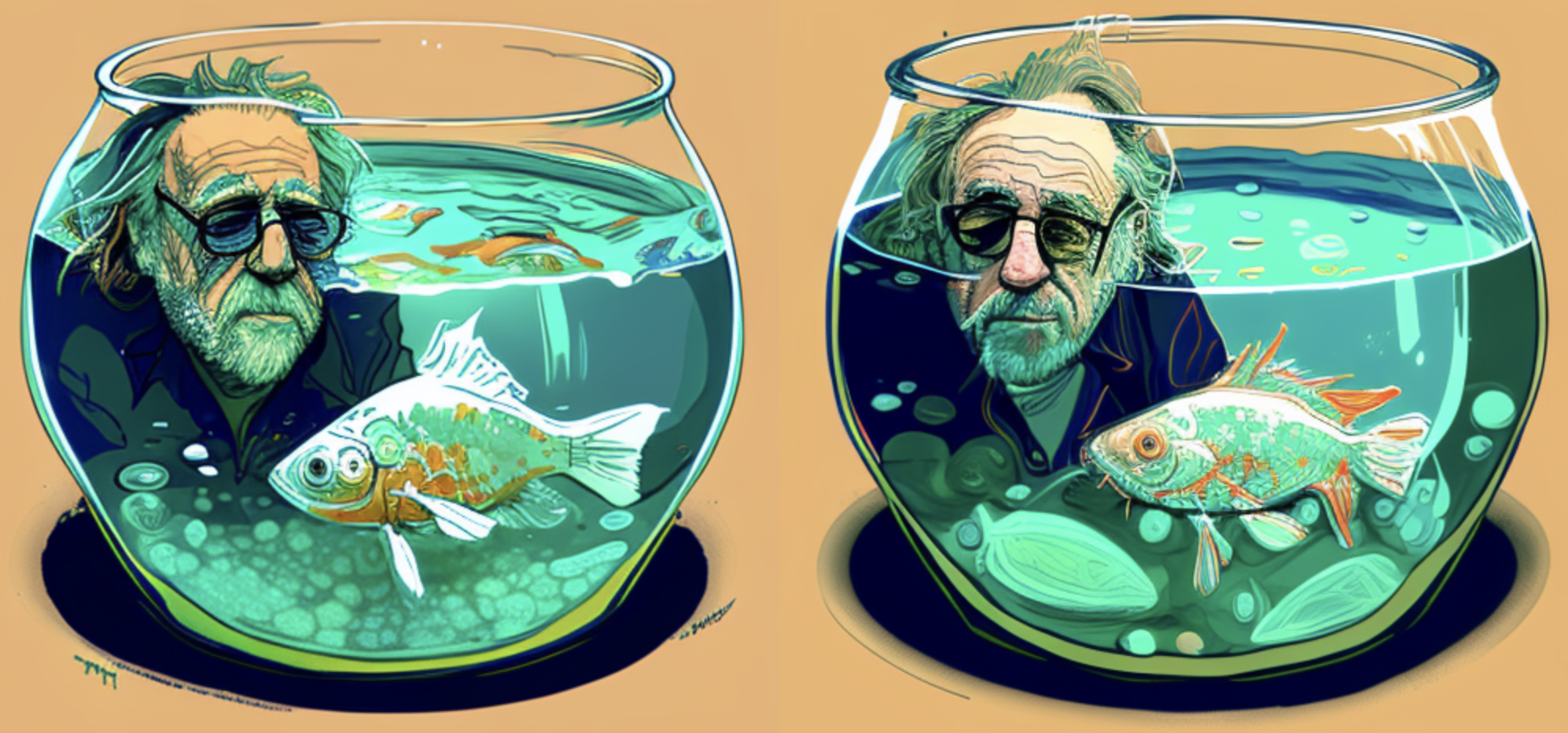Desire by Stephen Dobyns
A woman in my class wrote that she is sick
of men wanting her body and when she reads
her poem out loud the other women all nod
and even some of the men lower their eyes
and look abashed as if ready to unscrew
their cocks and pound down their own dumb heads
with these innocent sausages of flesh, and none
would think of confessing his hunger
or admit how desire can ring like a constant
low note in the brain or grant how the sight
of a beautiful woman can make him groan
on those first spring days when the parkas
have been packed away and the bodies are staring
at the bodies and the eyes stare at the ground;
and there was a man I knew who even at ninety
swore that his desire had never diminished.
Is this simply the wish to procreate, the world
telling the cock to eat faster, while the cock
yearns for that moment when it forgets its loneliness
and the world flares up in an explosion of light?
Why have men been taught to feel ashamed
of their desire, as if each were a criminal
out on parole, a desperado with a long record
of muggings, rapes, such conduct as excludes
each one from all but the worst company,
and never to be trusted, no never to be trusted? Why
must men pretend to be indifferent as if each
were a happy eunuch engaged in spiritual thoughts?
But it’s the glances that I like, the quick ones,
the unguarded ones, like a hand snatching a pie
from a window ledge and the feet pounding away;
eyes fastening on a leg, a breast, the curve
of a buttock, as the pulse takes an extra thunk
and the cock, that toothless worm, stirs in its sleep,
and fat possibility swaggers into the world
like a big spender entering a bar.
And sometimes
the woman glances back. Oh, to disappear
in a tangle of fabric and flesh as the cock
sniffs out its little cave, and the body hungers
for closure, for the completion of the circle,
as if each of us were born only half a body
and we spend our lives searching for the rest.
What good does it do to deny desire, to chain
the cock to the leg and scrawl a black X
across its bald head, to hold out a hand
for each passing woman to slap? Better
to be bad and unrepentant, better to celebrate
each difference, not to be cruel or gluttonous
or overbearing, but full of hope and self-forgiving.
The flesh yearns to converse with other flesh.
Each pore loves to linger over its particular story.
Let these seconds not be full of self-recriminationz
and apology. What is desire but the wish for
some relief from the self, the prisoner let out
into a small square of sunlight with a single
red flower and a bird crossing the sky, to lean back
against the bricks with the legs outstretched,
to feel the sun warming the brow, before returning
to one’s mortal cage, steel doors slamming in the
cell block, steel bolts sliding shut?
- Desire by Stephen Dobyns
A piece of writing is a body of information governed by a purpose, purpose is predominantly communicated through structure – the selection and organization of significant moments of time. A work of art must engage the intellect. It must engage the emotions. It must engage the imagination. It must contain within it some definition of beauty. All fiction and poetry begin in metaphor, the act of inspiration is, I think, the sudden apprehension or grasping of metaphor.What the writer uses most often to create tension is surprise. All good metaphor incorporates surprise. A good poem constantly uses surprise.We write, finally, to be free of things, not to express ourselves; to become articulate, not to mumble to ourselves; to drive our feelings and vague ideas into consciousness and clarity. Structure is our primary means of achieving articulateness and consequently of communicating our discoveries. Read more here
Its like this
- Its like this by Stephen Dobyns






I came across DESIRE in the summer of 2020 in Kim Addonizio’s ORDINARY GENIUS. This poem has served to better inform my own writing about men and the sexual drive. Thank you for your honesty, clarity, and superb poetry.
Gwen Davis-Feldman